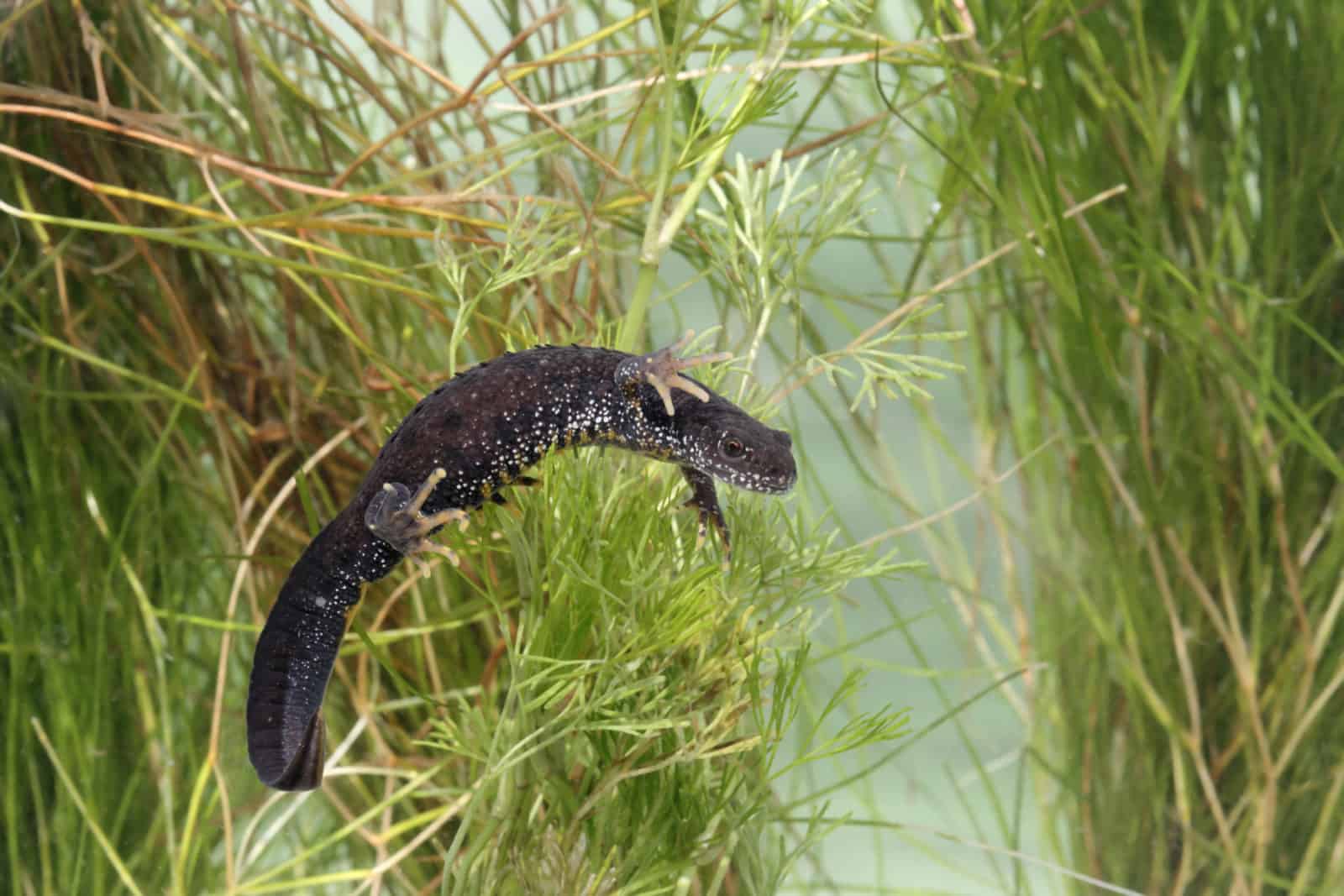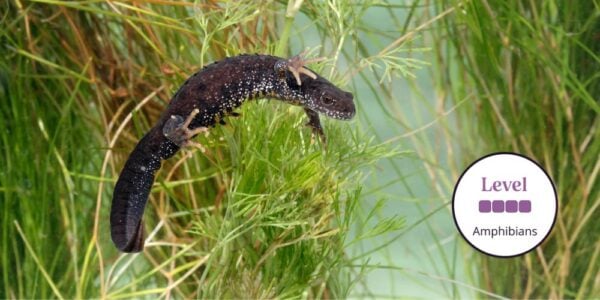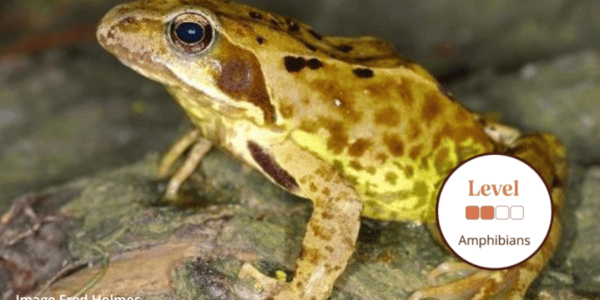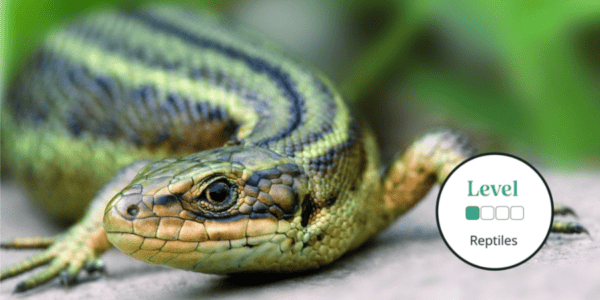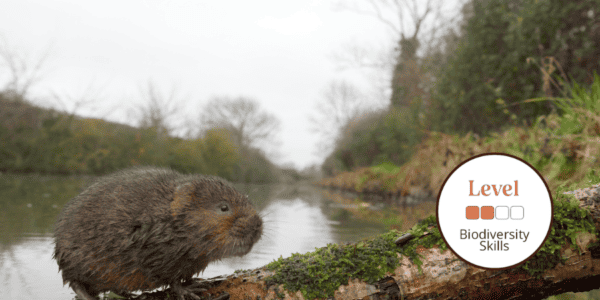This intermediate course will cover great crested newt identification and ecology, survey techniques, the Habitat Suitability Index (HSI), and will include opportunities to practice netting, bottle trapping, torch and egg searching.
Great crested newts are fully protected in the UK and training/experience is required to gain a Statutory Agency licence to carry out surveys. This course will be delivered through a balance of classroom learning and opportunities to survey for newts at a variety of ponds, practicing the main techniques discussed and identifying the newts found.
Please note – Natural England will accept an attendance certificate from this course in lieu of one reference for a great crested newt survey licence (but you will still need an additional reference). Click this link for more information. To access your certificate, you will need to log in to our Moodle platform and complete a short quiz within 7 days of attending your course. You will then need to download the certificate from the platform yourself.
What will be covered during this course?
-
- Species identification
- An overview of legislation
- Great crested newt ecology
- Survey methods, including opportunities to practice netting, bottle trapping, torching and egg searching
- Survey planning
- Habitat Suitability Index (HSI) for great crested newts
- Ways of recording and sharing your results
About our partner, ARC
The Amphibian and Reptile Conservation Trust (ARC) was established in June 2009. ARC was created around the core of the Herpetological Conservation Trust (HCT), in response to the wider needs of herpetofauna conservation, providing the UK focus for all aspects of reptile and amphibian conservation. ARC continues to focus on the UK Biodiversity Action Plan, creating an extensive network of nature reserves, coordinating monitoring programmes and volunteer networks and developing an effective role in advocacy both within the UK and Europe.
Tutor: Dr John Wilkinson
John is a conservation ecologist who has been working with amphibians and reptiles for over 25 years. He manages Regional, Science and Training Programmes for the Amphibian and Reptile Conservation Trust (ARC) and has a particular fascination for toads!
Example Timetable
Timetable
- Please arrive in time for the course to start promptly at 11:00am
- The course will end at 8:30pm
11:00am Introductions
11:15am Classroom session covering: Species identification and ecology
12:15 Field session at campus ponds
1:00pm Lunch – not provided
1:30pm Classroom session on survey techniques
2:00pm Field session - practicing survey methods
4:15pm Break
4:30pm Classroom session – legislation; Habitat Suitability Index for great crested newts
5:30pm Break - meal not provided
6:30pm Field session – HSI practical session and torch searching session
8:00pm Classroom roundup and final questions
8:30pm End of course
To receive your certificate, you will need to log in to our Moodle platform and complete a short quiz within 7 days of attending your course. You will be sent details on how to access the platform via email.
Please note accommodation, food and an evening meal are not included.
What's Included
The course has been carefully created by expert tutors and educators to help you continue to build and develop your knowledge and apply it within the field surrounded by like-minded individuals.
The course includes:
- Classroom learning covering the theory of the species
- Field excursions to apply new knowledge
- Expert tuition for which the FSC is renowned
- Clear objectives and progression
- Tailored certificate of completion
You can rest assured that the absolute best content from an expert in environmental education will be provided. In choosing an FSC course, you will be joining thousands of people who learn with us each year.
Bursaries and Subsidies
Student Discount
This course is eligible for a student discount. If you are a current student, please use discount code BioStudent20 at checkout for 20% off all Biodiversity courses.
Before You Attend
What to Bring:
- Wellies, waterproofs, clipboard, paper, pen and a high-powered torch (if you have one)
- An empty 2 litre lemonade/coke bottle
- Please bring a packed lunch and drinks
You may wish to purchase the FSC Guide to Reptiles and Amphibians to enhance your experience
Additional supporting documents will be made available electronically on the day – please bring a USB stick if you wish to take these away.
There will be a member of staff with first aid training and access to a first aid kit on site. If you have special medical or access requirements, please let us know as soon as possible so we can plan the course.
Sorry this course booking is closed

